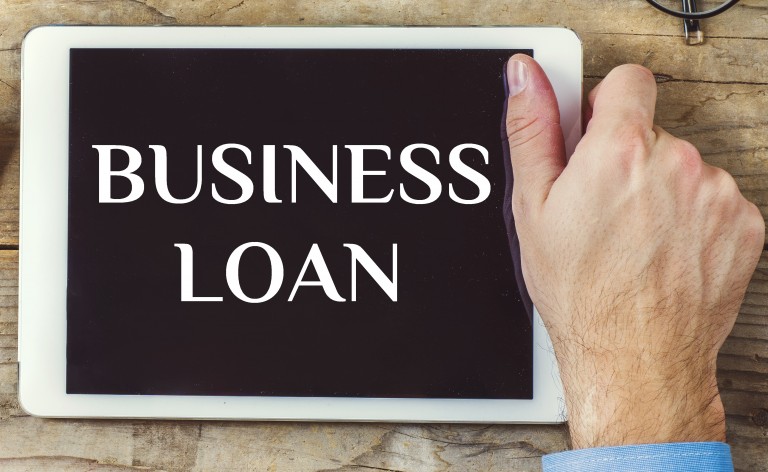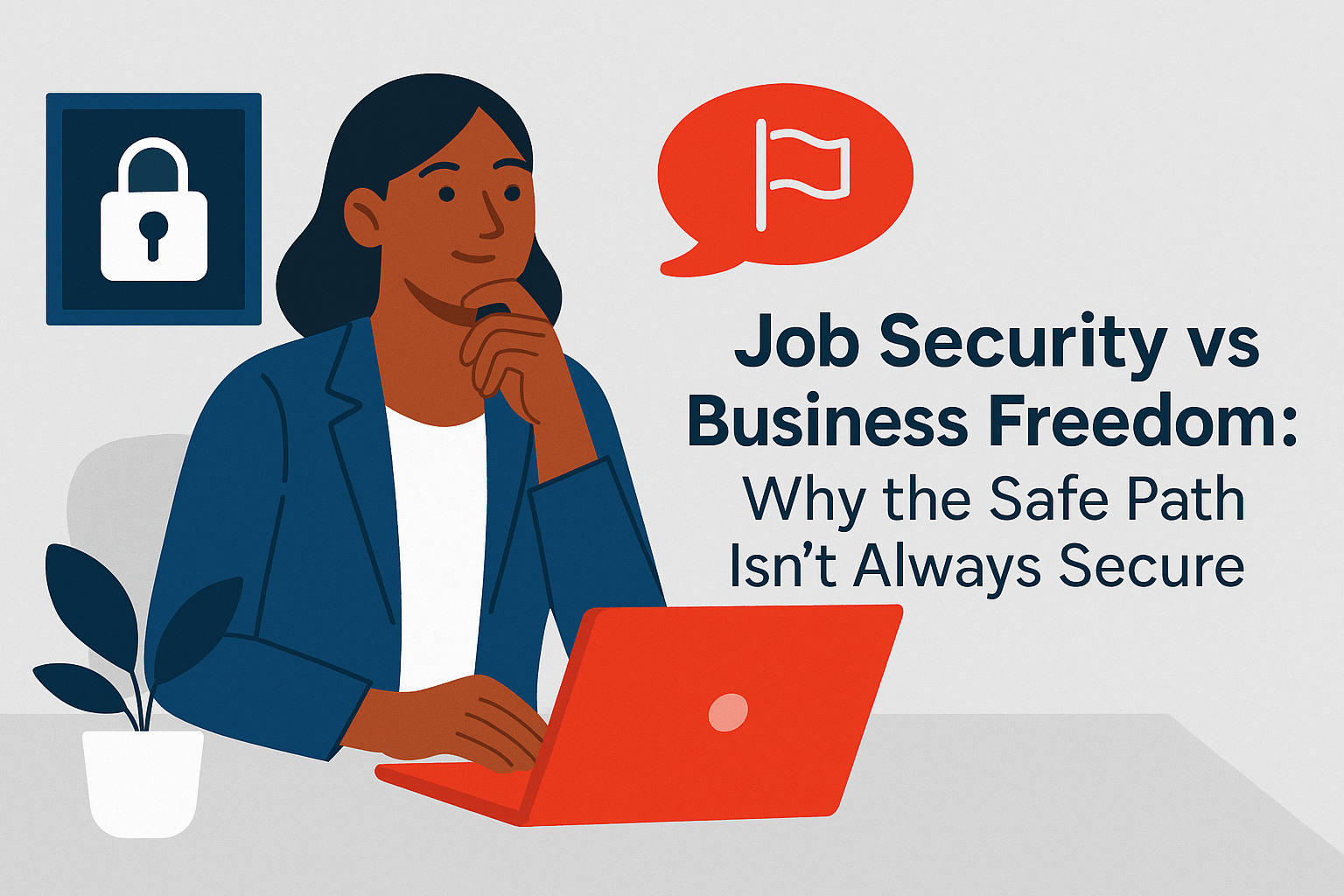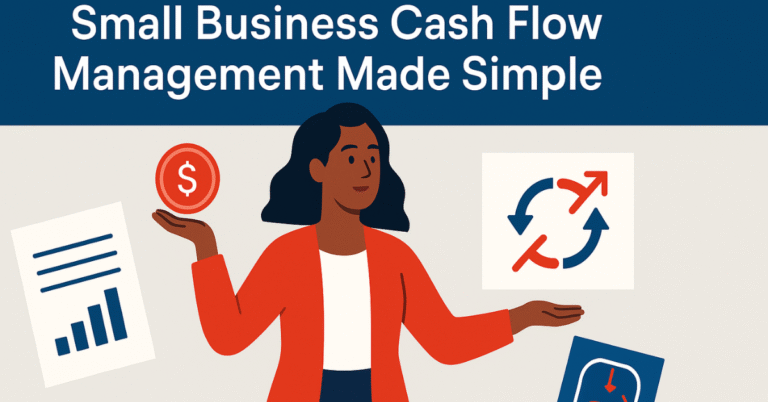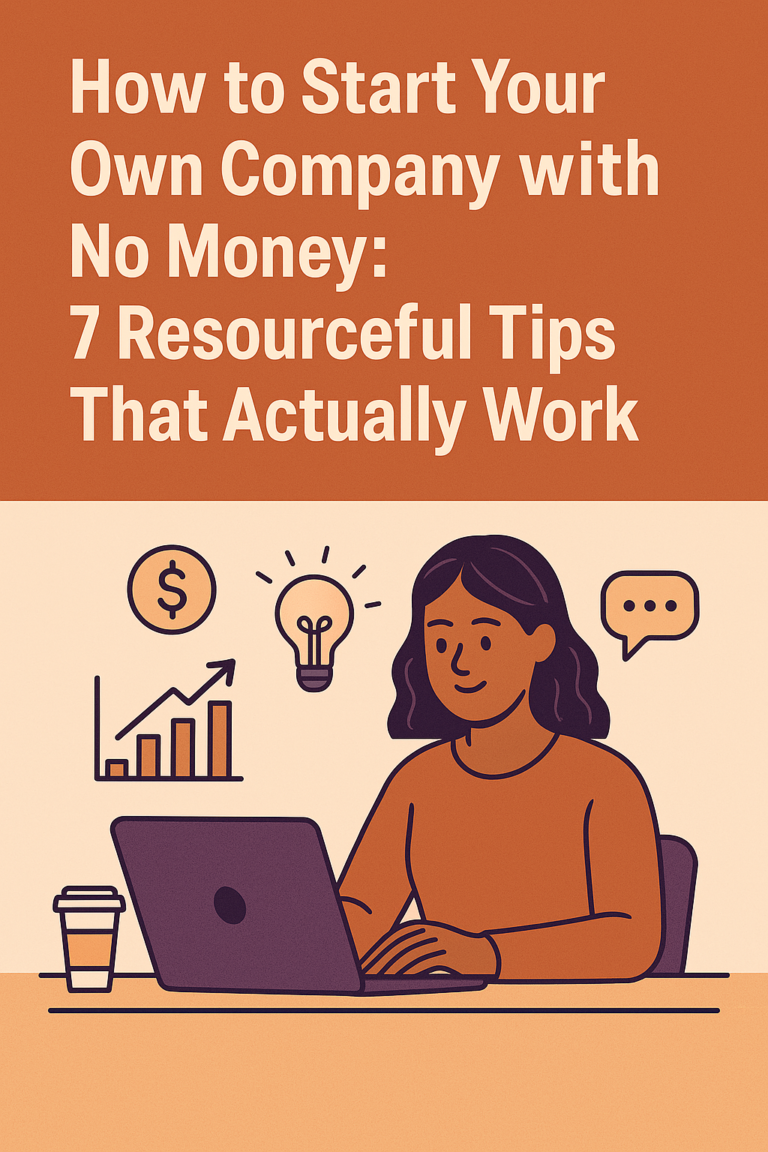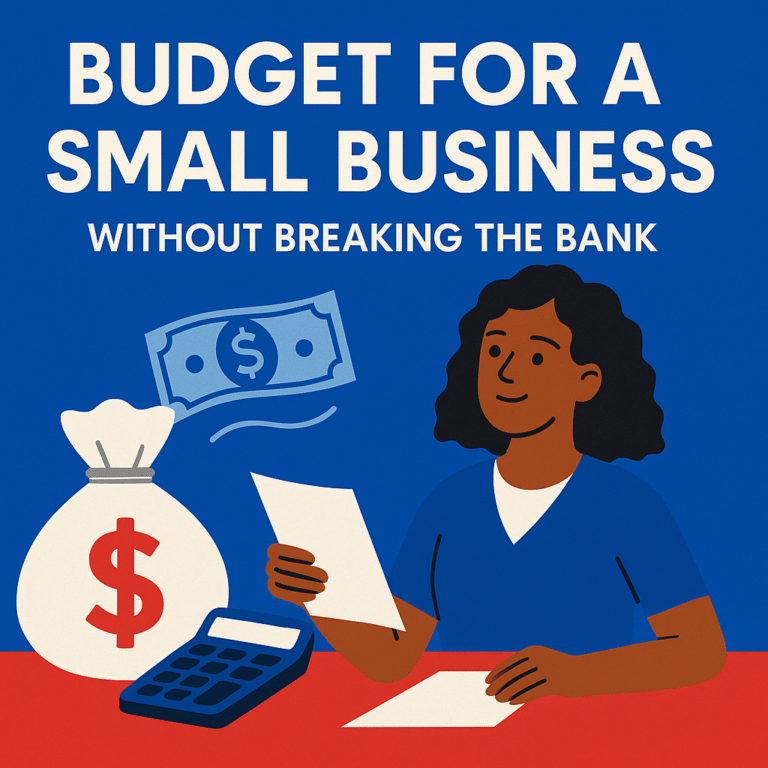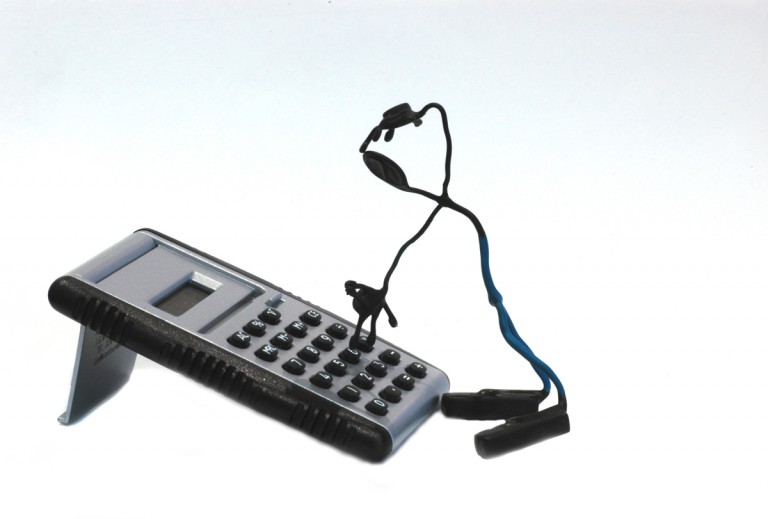Financial Freedom Fridays
Grants for felons to start a business are more than a nice idea—they’re often the only chance someone has to reclaim their future on their own terms.
I’m not writing this from a place of abstract sympathy. This one’s personal. I grew up surrounded by stories that rarely made the front page but shaped entire neighborhoods—people whose mistakes cost them everything, and people who rebuilt anyway. Some of them were family. Others were friends. And in every case, what made the difference wasn’t just accountability. It was access. Access to the kinds of opportunities that don’t ask you to prove you’re worth it before you’ve even had a chance to start.
That’s why this post—and honestly, this whole mission of Backbone America—includes people most systems overlook. When I wrote my vision, I said I want to build a future “where freedom isn’t a lottery prize—it’s a roadmap.” That doesn’t mean building pretty pitch decks for people who already have resources. It means getting in the weeds with folks who’ve been told ‘no’ more times than they can count.
And that includes formerly incarcerated people trying to start a business.
Why Grants Matter (Especially When Loans Aren’t an Option)
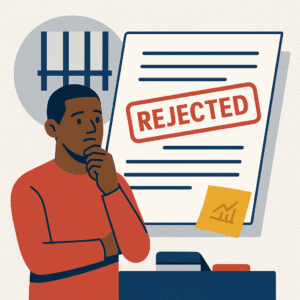
That’s where grants come in. And no—they’re not always easy to find. But they’re out there.
A standout example? The Rise Up, Get Started program by Determination, Incorporated gives second-chance entrepreneurs in Kansas City a $750 grant, but not without skin in the game. Participants start with $150, save $300 themselves, and earn a $600 match—plus business training and a public showcase. It’s not just funding—it’s a full-circle shot at rebuilding.
I’ve put together a starter guide on finding small business grants for felons that breaks some of this down in more detail—because access starts with knowing where the doors are.
A Note on Shame, Strategy, and Showing Up Anyway
That mindset? It’s not yours. You don’t have to carry it. If a system designed to lock you out still sees you as less-than, that’s not a reflection of your potential. It’s a reflection of how biased the system still is.
And this isn’t just about people with criminal records. It’s about anyone the system doesn’t trust with capital—people with bad credit, no credit, generational poverty, no cosigner, no cushion. I’ve met founders with solid ideas and airtight work ethics who couldn’t get a loan because they missed a rent payment during a crisis. The barriers don’t care about context.
But people do. That’s why programs like Kiva exist—where you raise a small amount from your personal network, and once you hit that target, Kiva steps in to crowdfund a 0% interest loan. It’s not charity—it’s community capital. And it’s a reminder: you don’t have to go it alone, even if the banks say otherwise.

And look, I’ll be honest—I didn’t always think I’d end up here, running a company like Backbone America. But when I started building this business, I knew it had to do more than help people “start businesses.” It had to meet people where they are. It had to make space for people who’ve been through hell and are still trying to build something better—for themselves, for their kids, for the people watching them quietly from the sidelines.
That’s why I offer services like the 31-Day Business Startup Challenge—because structured support shouldn’t be reserved for people with spotless résumés and LinkedIn pages full of endorsements. It should be available to people who have something to prove, yes—but more importantly, something to give.
If You’re Reading This, You’re Not a Long Shot
You’re not a liability. You’re not a burden. You’re not a second-tier founder. You’re a person with ideas and grit and experience most folks wouldn’t survive. And yes—if you’re someone looking for grants for felons to start a business, or if you’ve been turned away because of bad credit, generational poverty, or just not knowing the right person at the bank—you’re not alone.
You might have to dig harder to find the right resources. You might have to ask for help more than once. But none of that disqualifies you. It makes you real.
That’s exactly why I pulled together two curated grant lists:
One specifically focused on grants for felons to start a business—with options like Rise Up, Get Started that meet you where you are, not where the system expects you to be.
And another list for underserved founders—people who are often skipped over because they don’t fit the mold of what “investable” is supposed to look like.
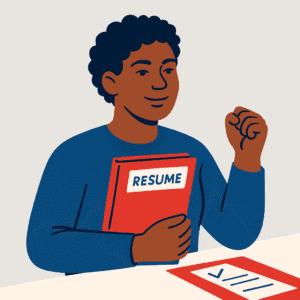
Some of these grants are small. Some take time. But they’re out there. And together, they make up a roadmap. Not a perfect one, but a real one.
If you want help mapping it out, I’ve got you. You can start with the grant list. Or the challenge. Or just a conversation. The point is, you start.
That’s the part that matters.
🔒 Loans & Grants for Felons to Start a Business
- Rise Up, Get Started Matching Grant (Kansas City, MO)
This program offers formerly incarcerated entrepreneurs a $750 grant. Participants receive an initial $150, save $300 themselves, and then receive a $600 match upon completing a business support program. - Help For Felons
Offers a comprehensive list of resources, including grants and loans, specifically for individuals with felony convictions. - LEAP (Ladies Empowerment and Action Program)
LEAP provides a three-month program for formerly incarcerated women, including classes twice per week. At the program’s conclusion, participants pitch their business plans to a panel for a chance to win cash prizes. Graduates are also eligible to apply for a $1,000 microloan.
🤝 Loans & Grants for Underserved Entrepreneurs
- Kiva U.S.
Offers 0% interest microloans up to $15,000. Entrepreneurs begin by raising a portion of the funds from their network, after which Kiva’s community of lenders funds the remainder. - SBA 8(a) Business Development Program
While not exclusively for felons, this program supports socially and economically disadvantaged individuals, which can include those with criminal records, by providing access to government contracting opportunities. - Grants.gov
A centralized database for federal grants. While not specific to felons, it includes various opportunities that may be applicable. - Economic Development Offices
State and local economic development offices often provide information on government funding solutions, training programs, and tax incentives aimed at promoting and supporting local businesses. When I worked as an SBDC advisor, I worked with the local Economic Developer to create grants for daycare centers. Every economic developer has different needs and supports the community based on those needs.

